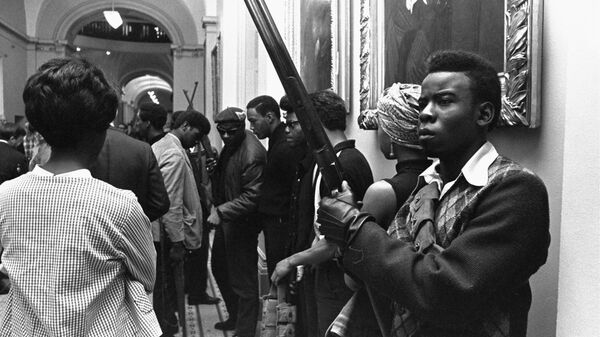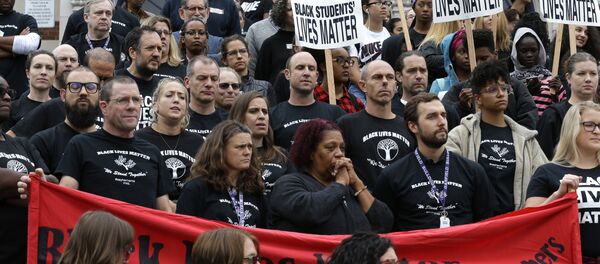Described by Noam Chomsky as "the greatest domestic crime of the Nixon administration," the assassination took place at roughly 5 a.m. when 14 police officers raided Hampton's apartment and fired off dozens of bullets. Along with Hampton, Mark Clark, a party leader, was shot dead, while several others received bullet wounds.
— PSL — Socialism 🚩 (@pslweb) December 4, 2017
Also in the bullet-ridden apartment was Deborah Johnson, Hampton's eight-month-pregnant fiance who barely managed to escape with her life.
Speaking to Radio Sputnik's By Any Means Necessary, Marshall Eddie Conway, a former Black Panther member and political prisoner, says Hampton's ability to mobilize people is what "made him a very detrimental person in terms of the perils that be and the government."
"It was just a necessity for the ruling class to assassinate him, not only that, but he was also very, very, young so he appealed to the young generation and so on and that in itself also was a threat," Conway told show hosts Sean Blackmon and Eugene Puryear.
And yet, despite the years that have past, the relationship between the FBI and black movement campaigns haven't exactly improved, notes Blackmon sardonically, pointing toward the Bureau's recent report on so-called "black identity extremists."
Could this be a sign that the agency "is sort of poised for a new wave of repression," asks Blackmon.
Conway's response? Yes.
"This black identity extremism doesn't even designate particular groups, but it goes right across the black community to individual levels," Conway said. "You can celebrate Kwanzaa and be considered a black identity extremist."
For Conway, the situation is only going to continue to worsen until something changes.


